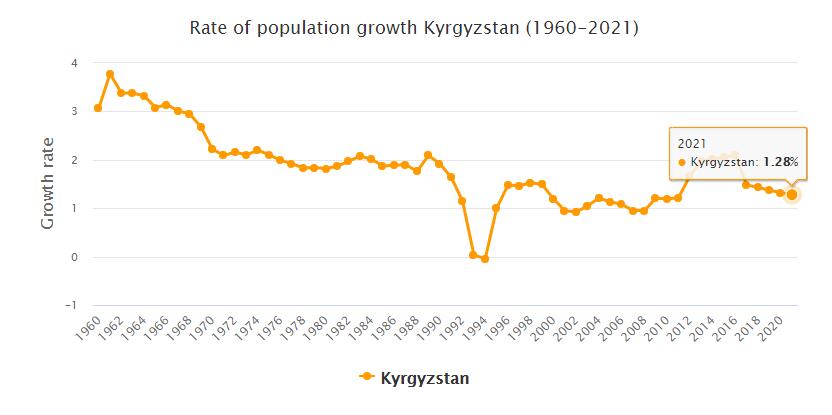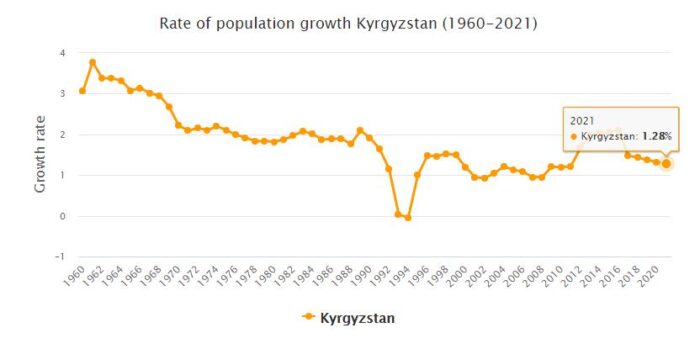Yearbook 2008
Kyrgyzstan. After the big victory in the parliamentary elections before the New Year, the power party Ak Zjol in January decided to limit the right of expression in parliament. Only group leaders, committee chairs, presidents and proposers would debate, which was condemned by the opposition.
In February, an investigation report found that the Uzbek security service was probably behind the assassination of regime-critical journalist Alizier Saipov in Kyrgyzstan the year before. According to the International Crisis Group (ICG), there were “strong indications” that Saipov was murdered by Uzbekistan’s security service.
The year 2008 was announced as Ajtmatov’s year to honor the country’s most famous author, Chingiz Ajtmatov. But he died during the summer just before he was 80 years old. In Soviet times, Ajtmatov was mentioned as a candidate for the Nobel Peace Prize, and at independence in 1991, Kyrgyzstan wanted to make him president but he declined.
- ABBREVIATIONFINDER: Click to see the meanings of 2-letter acronym and abbreviation of KG in general and in geography as Kyrgyzstan in particular.
In August, a group of doctors and nurses were sentenced to multi-year prison sentences accused of having infected children with HIV at a hospital in southern Kyrgyzstan. The convicted, who would also pay large damages to the children and their families, claimed that the tragedy was due to the hospital’s poor conditions. According to the prosecutor, over 40 children and some mothers had been infected through neglect in connection with injections and blood transfusions. According to foreign aid workers, similar scandals are common but are rarely discovered because HIV infection is a taboo topic in the strongly Muslim Kyrgyzstan.
Many deaths were required in a couple of disasters during the year. In August, about 70 people died when a passenger plane crashed after taking off from the airport outside Bishkek. It was the worst air crash in the country since independence. In October, at least 72 people were killed in an earthquake, which had its center in southern Kyrgyzstan but was known across much of Central Asia.
In November, Parliament passed a law that, according to critics, meant a number of restrictions on religious freedom. The law was portrayed as a measure against terrorism, but according to Christian leaders, it was aimed, among other things, at people who shift beliefs, especially from Islam to Christianity.
In November, about 1,500 people gathered for a government-critical demonstration in the city of Talas, where opposition supporters demanded the resignation of President Kurmanbek Bakijev. According to the organizers, opposition activists had been subjected to threats and violence before the protest.
The strength of a poor country is its rugged and beautiful nature
Kyrgyzstan, a small and mountainous inland state of the Kyrgyz, a Turkish nomadic tribe, is located almost entirely at an altitude of more than 1,500 meters. The most spectacular of the mountain ranges is Tienšan, whose peaks reach more than 7,000 meters. Other great mountains are Alai and Pamir. The sparsely populated Alain Valley remains in the middle. The only fertile and green Kolkka is the part of the Fergana Valley on the Uzbek border. The country’s climate is continental and especially in winter travel is awkward with snow clogged gaps between the mountains. Lake Issyk-Kul, bordered by the ever-snowy mountain ranges in the northeast of the country, is a popular hiking and leisure area. The salt content of a deep water basin is relatively high, so it does not freeze even in cold weather. At the eastern end of the lake is the town of Karakul, born in the late 19th century and originally inhabited by the Siberian Cossacks, where the famous Russian zoologist Nikolai Prževalski is buried. Another lakefront town, Cholpon Ataa has been called Asian Patagonian for its excellent hiking opportunities.
Kyrgyzstan is one of the poorest countries in Central Asia and the least urbanized. In addition to Kyrgyz, the country is inhabited by minorities Uzbeks and a small number of Russians. The official languages are Kyrgyz and Russian. The rugged nature is not suitable for farming, which really only works in the Fergana Valley. Maize and tobacco are the most important crops. Alpine meadows are suitable for sheep farming. There are small amounts of coal, natural gas, mercury, even oil underground, but gold is by far the most significant natural resource. Industry is underdeveloped and, like agriculture, is based on small private actors. In recent years, Kyrgyzstan has attracted a growing number of tourists to the country. Hiking in stunning scenery, watching an eagle hunt or participating in the lives of nomads are great experiences.
Population 2008
According to Countryaah reports, the population of Kyrgyzstan in 2008 was 5,422,182, ranking number 112 in the world. The population growth rate was 1.330% yearly, and the population density was 28.2706 people per km2.
HUMAN AND ECONOMIC GEOGRAPHY
According to a 1998 estimate, Kyrgyzstan, an independent state since 1991 and a founding member of the CIS, has reached a population of 4. 643. 000 residents. The ethnic group that gives the country its name, the Kyrgyz people, make up a little more than half of the population; the two main minority groups are the Russians (one fifth of the population, almost all resident in urban centers, but partly in the process of emigrating to the motherland) and the Uzbeks (13%); then there are smaller groups of Ukrainians, Germans (descendants of the ‘Volga Germans’ deported here by Stalin during the Second World War) and others. The administrative subdivision is on a provincial basis, without ethnic references. The majority of the population (Kyrgyz, Uzbeks and some minor groups) profess the Sunni Muslim religion and have a lively demographic behavior. Since 1992 the Kyrgyz language, of Turkish-Tatar lineage, has joined Russian as an official language and has adopted the Latin alphabet.

